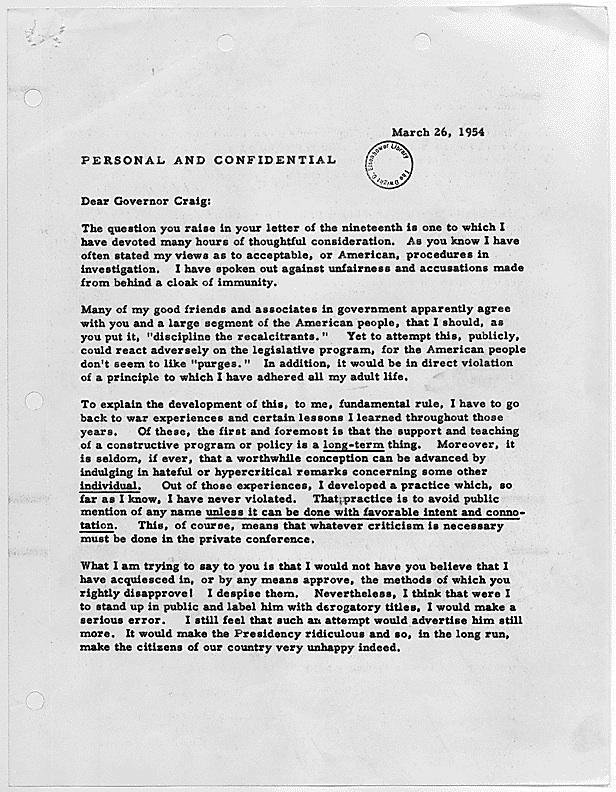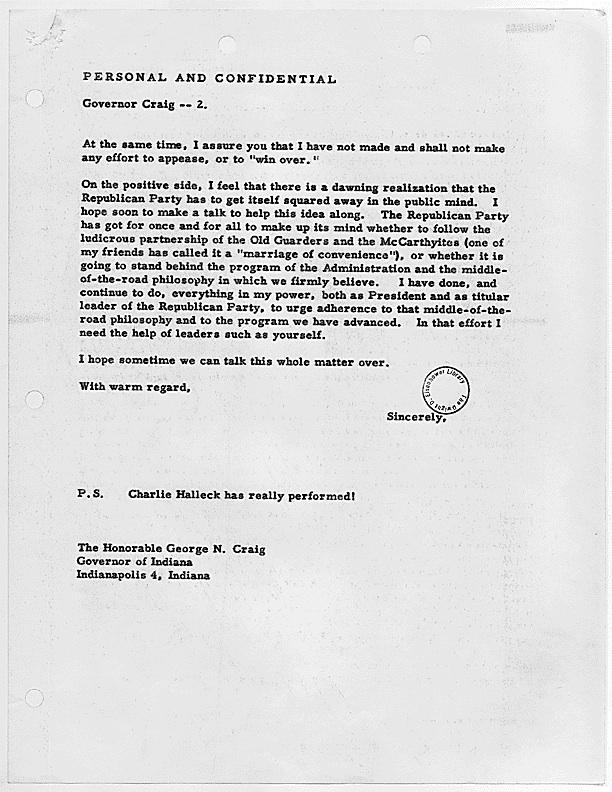The Vault is Slate’s history blog. Like us on Facebook, follow us on Twitter @slatevault, and find us on Tumblr. Find out more about what this space is all about here.
In March 1954, President Eisenhower sent this letter to George N. Craig, then the Republican governor of Indiana, defending his policy of not publicly criticizing the actions of Sen. Joseph McCarthy. The letter shows how carefully Eisenhower had formulated this tactic, and how often he had fielded questions about its appropriateness.
In 1954, McCarthy was at the tail end of a four-year hunt for supposed communist subversives in American government and public life. In late 1953, the senator had begun to accuse the military of harboring communists, which deeply offended Eisenhower. (Craig, a fellow veteran and leader in the American Legion, must have expressed a similar discontent in his initial letter.)
International relations scholar Kenneth W. Thompson writes that although Eisenhower “deferred to professional politicians” in refusing to attack McCarthy by name during the 1952 presidential campaign, the president later regretted not having spoken up. Thompson quotes Eisenhower biographer William Ewald’s opinion that Eisenhower came to see the decision to remain silent as “a terrible mistake,” and that it was something that the president was “very defensive about.”
Any regrets notwithstanding, some within the administration continued to believe that Eisenhower had done the right thing. Thompson quotes an interview that the Miller Center at the University of Virginia conducted with advisor Bryce Harlow:
Truman attacked [McCarthy] personally, by name. Thereby he created a monster. Eisenhower killed him and he did it by ignoring him. The press went almost wild trying to force Eisenhower to attack him …The result proved [Eisenhower] right.
In the end, as the Miller Center writes, although Eisenhower did “work quietly, behind the scenes, to frustrate McCarthy’s investigations,” the senator’s fall came about more organically: “What did far more to diminish the senator’s power was television’s ability to bring McCarthy’s surliness into American living rooms.” By the end of 1954, the Senate passed a censure motion reprimanding McCarthy, and his investigations ended.

National Archives.

National Archives.